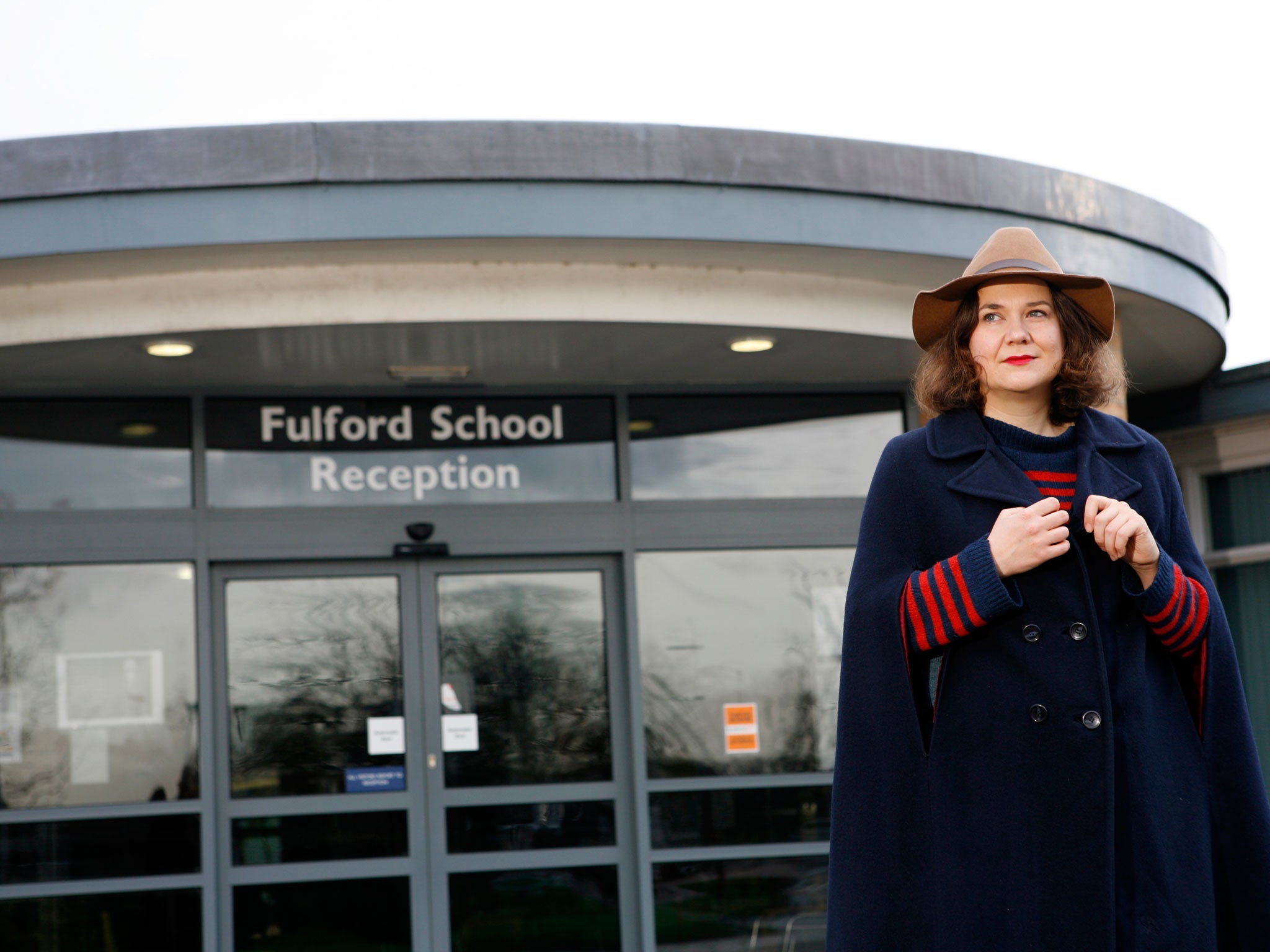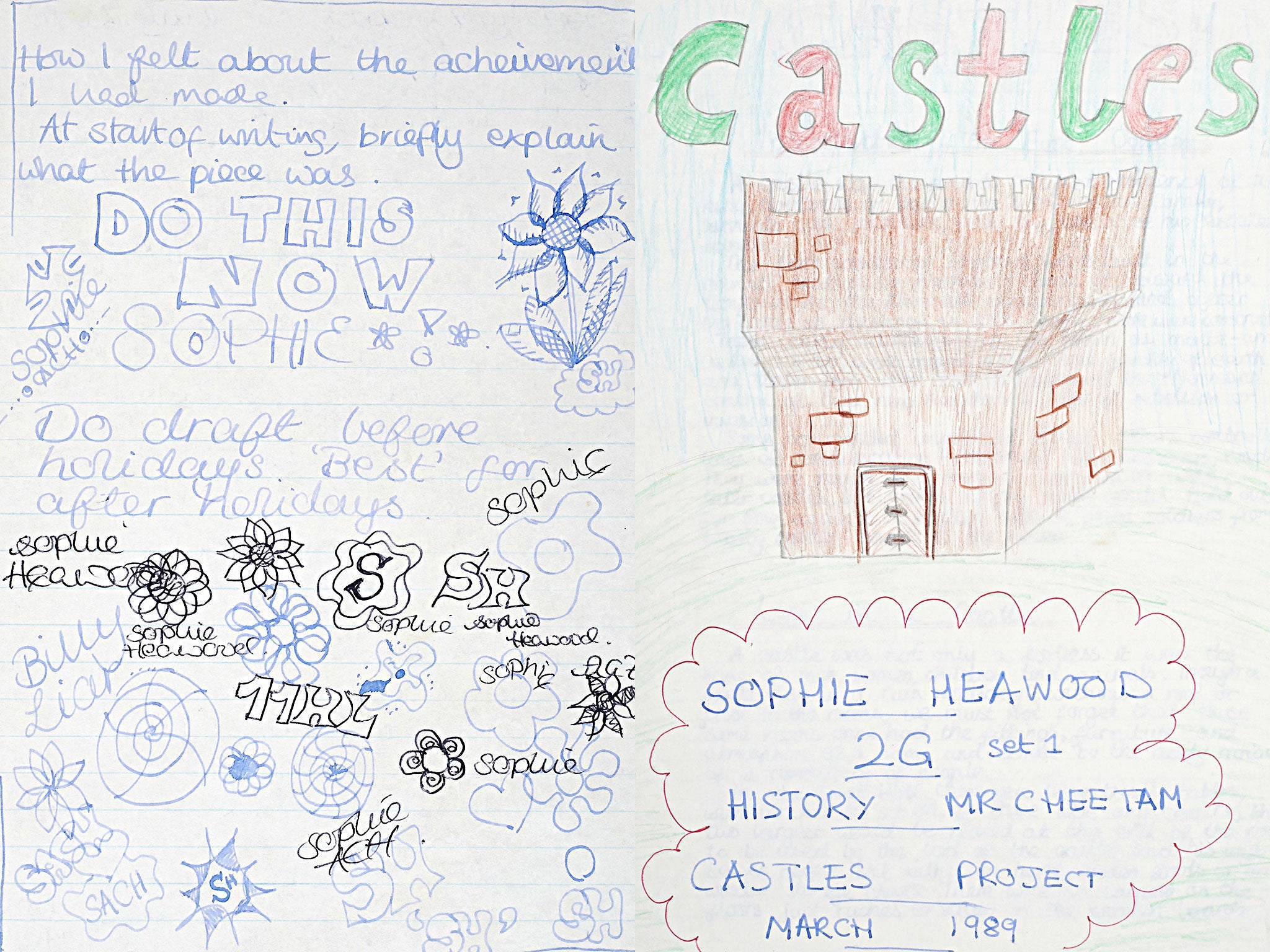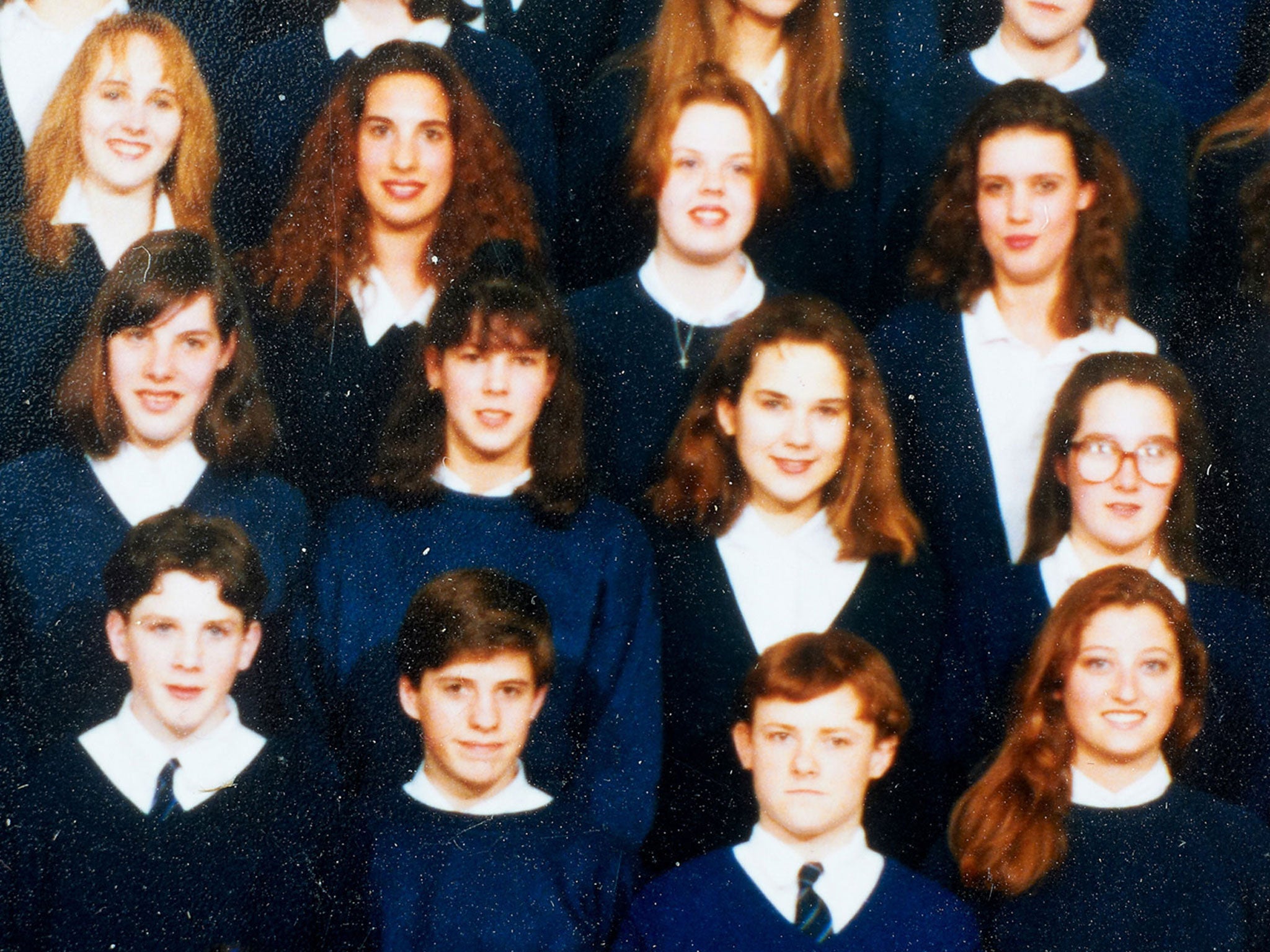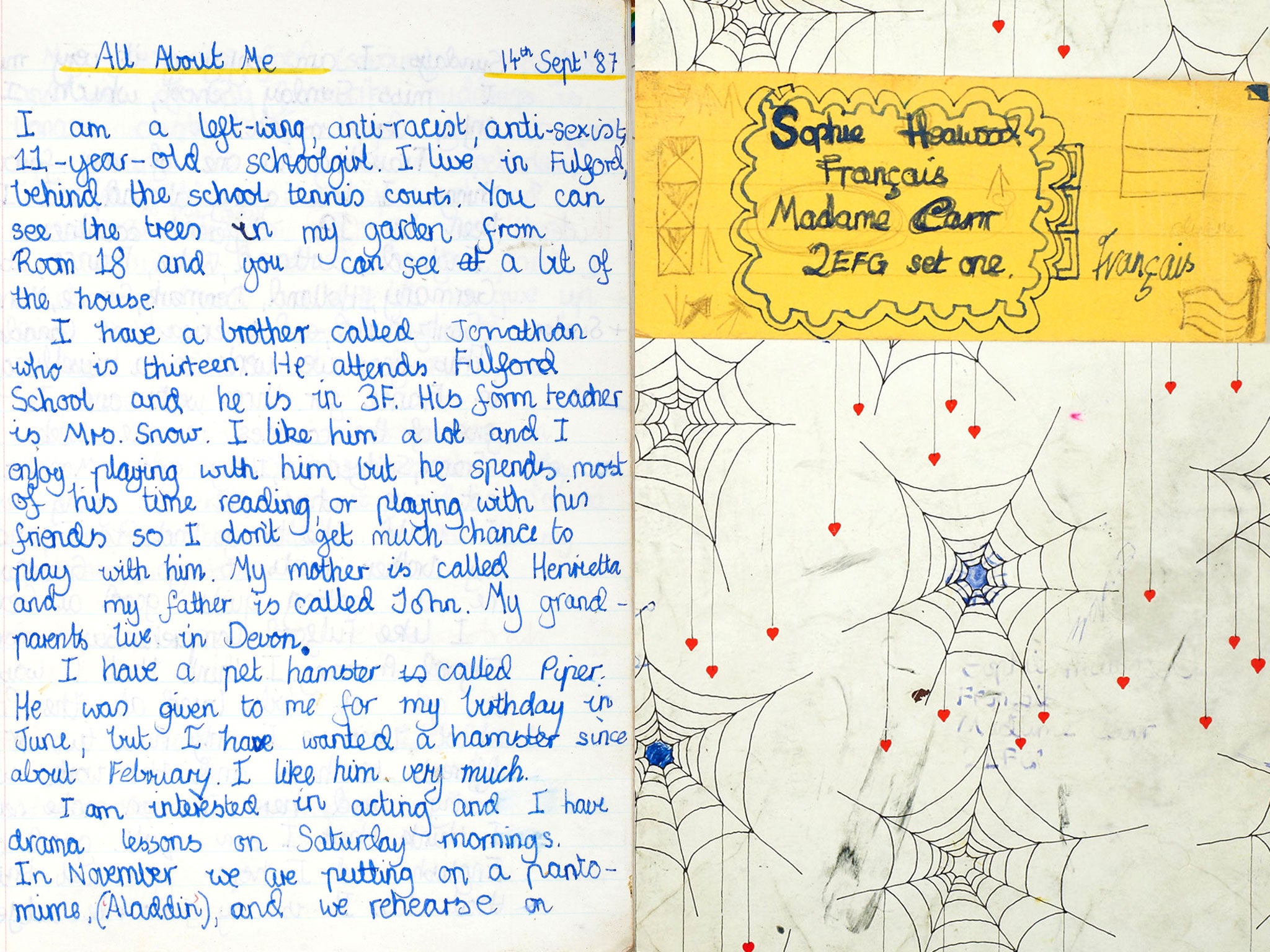Britain's best state schools: How did Fulford hit the big time?
Sophie Heawood was amazed when the Yorkshire comprehensive she attended in the 1990s made it on to Tatler's latest list of Britain’s best state schools. And it got her looking back

Your support helps us to tell the story
From reproductive rights to climate change to Big Tech, The Independent is on the ground when the story is developing. Whether it's investigating the financials of Elon Musk's pro-Trump PAC or producing our latest documentary, 'The A Word', which shines a light on the American women fighting for reproductive rights, we know how important it is to parse out the facts from the messaging.
At such a critical moment in US history, we need reporters on the ground. Your donation allows us to keep sending journalists to speak to both sides of the story.
The Independent is trusted by Americans across the entire political spectrum. And unlike many other quality news outlets, we choose not to lock Americans out of our reporting and analysis with paywalls. We believe quality journalism should be available to everyone, paid for by those who can afford it.
Your support makes all the difference.Well there's my cover blown. Fifteen years of working in the media in London, often surrounded by southerners who went to public schools like Marlborough, Rugby, and St Paul's, and I have always enjoyed being able to mutter, "Actually I went to a very normal comprehensive. In Yorkshire." Meaning that, yes, while I am quite middle-class, and might sound a bit like my colleagues, I didn't have the sort of education that they're referring to, I don't know what that Latin quote means and I'm probably never going to find out who Marcus Aurelius was.
More important, it means that I'm not going to laugh along with the patronising assumption that one of them just made about northerners, or state-school kids, or the terrible effect of comprehensive education, and why we should bring back grammar schools, or, you know, hanging. (You'd be amazed what people come out with. Amazed.) Even if I am actually a bit annoyed about my mediocre education and that I don't know who Marcus Aurelius is – well, all right, I just looked him up – I still like my position of nobody having paid for me to learn nothing much in particular.
Anyway, the point is that my cover has been blown, along with any street cred I liked, delusionally, to think I had, because Tatler is now telling its readers to send their precious darlings to my old school. Sorry, what? Yes, Tatler, a magazine about aristos who went to posh schools like those listed above, recently started publishing an annual list of the best state schools in the country, having previously only ranked fee-paying schools. Fulford School, my York comprehensive, is in it.
Tatler realises its readers might disregard the state sector, but has issued the advice that it can give your children "a better preparation for the real world, the one where not everything is handed to them on a sterling-silver platter, where there is a cosmopolitan mix, where you will have to fight to get to the top. And best of all, when you do finally get into the Cabinet, everyone will love you because you didn't go to Eton". Something that seemed doubly hilarious when I found out that a recent maths whizz from Fulford has actually been given a sixth-form scholarship – to Eton.

My alma mater – yes I do know how to say that – also now tops the Ofsted league tables for the region, with 37 per cent of last year's GCSE results being an A or A*, and A-Levels even better, with 65 per cent getting an A*, A or B. The news left me in a state of shock.
Can this really be Fulford, where one teacher used to mysteriously leave the classroom for 10 minutes every single lesson and come back stinking of Benson & Hedges? The place where certain boys shouted brainy girls down until you gave up and became a bit thicker because it made them feel better? The place where another teacher once ripped up some poems I wrote in the back of an exercise book, and then suspended my brother for sticking up for me, banning him from a class trip to see the Shakespeare play he so loved and had studied so hard for? Or where another teacher once prodded my classmate with a long rod until she fell over backwards, and he kept her on the floor so he could peer at her bra. (His punishments for boys were even better – "If you do that again I will KICK you from Shrove Tuesday to Sheffield Wednesday!") That school is not somewhere I'd put on a top 10 list of anything, I thought to myself, other than the top 10 places that can transform passion and potential in children into boredom and despair. But then I had to admit that a lot can change in 25 years.
I'm 39 and I went there in the 1990s. My parents still live right beside the school, so it's there every time I visit them, although I always tilt my head to avoid seeing it properly – to avoid having to think about a time in my life when I was so full of ideas, but couldn't find a welcoming harbour to put them in, and was constantly in trouble for not shutting up and doing as I was told. Perhaps that wasn't the school's fault at all – perhaps that is simply the global condition of being a teenager (or in my case, the global condition of being a total pain in the arse). Perhaps I'll never be able to fully disentangle the two.
Or perhaps it simply comes from becoming one of 1,000 at such a sensitive time in your life – in fact, there are 1,400 pupils there now. (I'm sure some of my desire to work freelance comes from never wanting to be one of a thousand people doing similar things in the same building ever again.)

On further investigation, though, it turns out that while the grades are getting higher and the intake numbers have swelled, it's not the exam machine that I imagined such places might have become. I also learnt that I too have become a southern snob, just like the people I started this article by moaning about. For example, Stoke Newington School in London, in an area sometimes jokingly referred to as Stoke Lesbington, has its own LGBT representative, and an LGBT history month. How utterly brilliant, I have always thought, musing, in idle moments, on how if my daughter turns out to be gay, at a young enough age, then we could just move a couple of miles across Hackney to the more progressive side of the borough, and she could go there. Surely, I thought, no other schools have got very far with this issue yet. (Or any other parents, as she is only four. I know, I do overthink things.)
Well I was wrong – my old Fulford School, in a part of Yorkshire I couldn't wait to see the back of, was recently visited by Sir Ian McKellen, yes that's right, Gandalf, so he could give them a Stonewall award. The same school where I watched a boy who was obviously gay, camp and scared, get bullied mercilessly every single day, forced to stand alone in the playground while people mocked him. That school is now recognised for its work to combat homophobic bullying, with McKellen launching the pledge of commitment to the Stonewall #NoBystanders campaign. He even stayed for a Q&A session with the kids about it. I wonder if anyone reading this, of roughly my age or older, can imagine a famous actor coming to their school to talk about being gay – honestly, it feels like I'm dreaming. What enormous progress humanity has made, thanks to some tireless campaigning by people who got spat at and punched for years at school. It is astonishing.
And then there are the Feminist Fridays held at my old school nowadays. Quite honestly, if they'd had a Feminist Friday in the 1990s, they'd have had to spend most of it sacking people. Like a teacher who discouraged my best friend's interest in drums, because drum kits were "for boys". Or another teacher who told us that teaching was probably "the best job a woman can get". Or yet another who once asked me what that thing was over on an empty table, and when I told him it looked like a sanitary towel, announced "EVERYBODY OUT OF THE ROOM, NOW!" I went along with the evacuation, lacking the heart to tell him that he needn't panic as it still had its wrapper on.
On a trip back to York I found out that the kids have changed too – in fact I spent New Year's Eve round at a friend's house who has two teenage daughters at the school. They say they absolutely love it there – we certainly never spoke like that. One is soon off to America with her award-winning gymnastics team, if she can save up the money for the flight, while the other is getting straight As in everything, is very funny, and has a lovely boyfriend who spent the evening with us too. They're not posh kids – they were raised by a single mum with no help and on a very tight budget. And they all behave so much more responsibly than I ever did. I wonder if we're worrying needlessly about young people today.

Sometimes I still think I want to get my daughter out of the state system altogether, and send her somewhere more progressive, more inspired by Summerhill or Waldorf or the Small School Movement, which believes that children thrive dramatically better in smaller groups. I even went to look round King Alfreds, a beautiful progressive school beside Hampstead Heath, which would be very hard for us to get to geographically, or financially, but still. I was utterly enchanted, especially when the head teacher said that the kids would be showing us round, and that they hadn't been briefed, because children here were free to speak their minds. This is what I want for my child, I thought. And so the son of a rock star gave us a tour, pointing out how much he hated the food, how stupid it was teaching French and Spanish on the same day, and then having a tantrum beside the suite of music rooms when somebody mentioned his dad. And then I remembered why I send my kid to a state school.
As for Fulford, I have walked past it a hundred times on visits home. It used to make me so sad. Nothing truly terrible happened there, not to me at least – it's just that a part of your spirit can die at school, and it can take so many years to get it back. But something in me has genuinely shifted after writing this. I feel more optimistic about the future. About the stuff we are teaching our children. Then I asked my mum and dad about it too. "It was always thought of as a good school," they said. "We moved house so you could both go there." And then I wondered, as my mind boggled some more, if memory had played tricks on me entirely, and if I should actually have spent this entire piece apologising to all the teachers who slaved away over ingrates like me. It's just that all their hard work, in the end, doesn't make for such amusing anecdotes.
Join our commenting forum
Join thought-provoking conversations, follow other Independent readers and see their replies
Comments